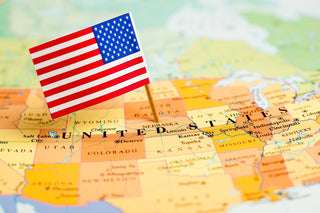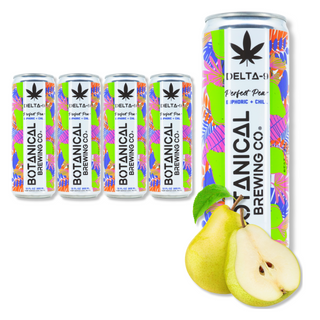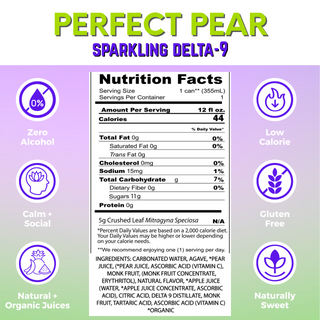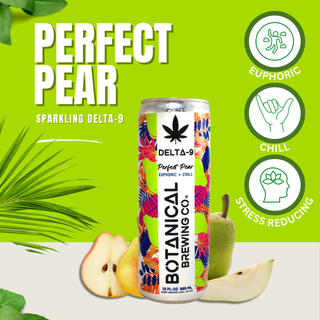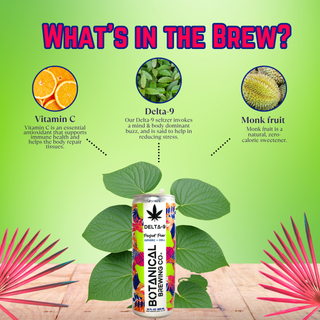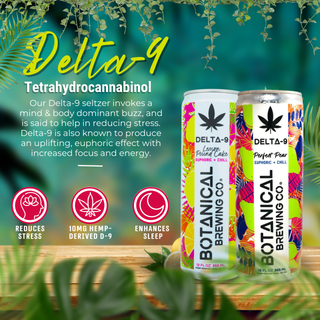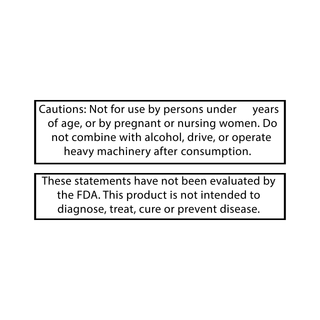Introduction
Delta-9 THC is the main psychoactive component of cannabis, and its legality in the United States depends on federal and state laws. Where is Delta-9 legal? While Delta-9 from hemp is legalized at the federal level, the laws regarding Delta-9 from marijuana vary considerably between states. It is important to know these specifics to avoid legal problems and to understand where Delta-9 use is legal or restricted.
Federal law regarding Delta-9 THC
At the federal level, Delta-9 THC derived from marijuana remains illegal under the Controlled Substances Act, where it is classified as a Schedule I substance. This means it is considered dangerous with a high potential for abuse and no recognized medical use. However, the 2018 Farm Bill legalized Delta-9 THC derived from hemp as long as its concentration does not exceed 0.3%. This creates a distinction between cannabis products that are illegal and hemp products that are legal.
How state-level laws work
However, state-level laws can vary. Some states have legalized Delta-9 for medical or recreational use, while others follow federal restrictions or have stricter laws. This makes it important to understand the legislation at both the federal and state level.
States where Delta-9 is legal
Delta-9 THC is legal for recreational and medical use in many states in the United States, allowing residents of these regions to freely use cannabis products. But is Delta-9 federally legal? Delta-9 from hemp is federally legal under the 2018 Farm Bill, but Delta-9 from marijuana remains illegal at the federal level. However, the main states where Delta-9 is fully legalized for general consumption are California, Colorado, and Washington. These states have pioneered the legalization of cannabis, inspiring other regions to follow suit.
- California legalized the recreational use of Delta-9 THC in 2016 through the passage of Proposition 64. This allowed individuals over the age of 21 to purchase and use Delta-9 products without a medical license. The state also has well-established regulations for the sale, cultivation, and possession of cannabis.
- Colorado was the first state to legalize the recreational use of cannabis in 2012 after passing Amendment 64. Residents of the state can possess up to one ounce (about 28 grams) of Delta-9 for personal use.
- Washington also legalized Delta-9 for recreational use in 2012 with Initiative 502. The law allows people over the age of 21 to purchase up to one ounce of cannabis or Delta-9 THC.

In addition to these states, Delta-9 is legalized in regions such as:
- Oregon
- Nevada
- Illinois
- Massachusetts
- Michigan
- New Jersey
In these states, users can legally purchase, consume, and possess Delta-9 THC, with the sale of products controlled by strict regulatory authorities. It is important to note that each state has its own rules regarding the amount that can be possessed, the conditions of sale, and the places where cannabis can be consumed. Legalization in these regions allows people to freely use recreational products with Delta-9, reducing criminal prosecution for their use.
States with partial legalization
In many states, Delta-9 THC is legalized for medical use only. This means that only patients who have obtained the appropriate medical license have access to cannabis products. A medical license allows you to legally purchase and use Delta-9 to treat certain medical conditions.
States with partial legalization of Delta-9 include:
- Florida
- New York
- Ohio
- Arizona
- Pennsylvania
- Minnesota
- Montana.
In these states, patients must obtain a license from a licensed medical professional. The basic steps to obtain a license include:
- Consultation with a doctor - the patient must see a doctor who is authorized to prescribe medical cannabis. The doctor conducts an examination and determines whether the patient is suitable for Delta-9 treatment.
- Receiving a diagnosis - a medical cannabis license is granted to patients with certain diagnoses, such as chronic pain, cancer, epilepsy, multiple sclerosis, or post-traumatic stress disorder (PTSD).
- Registration in the state program - after being approved by a doctor, a patient must register in a special state program and receive a medical card that allows them to purchase products with Delta-9.
The conditions for obtaining a medical license and the list of diagnoses for which Delta-9 is allowed may vary from state to state. For example, in Florida, a medical license is granted to patients with severe chronic illnesses, while in New York, the program is more flexible and covers a wider range of diseases.
Patients with a medical license have the opportunity to purchase products with Delta-9 THC in specialized pharmacies (dispensaries) licensed to sell medical cannabis. It is important to note, however, that even in states with medical legalization, there are restrictions on the amount of Delta-9 that can be purchased and requirements for product safety and storage.
States where Delta-9 is illegal
Despite the gradual legalization of Delta-9 THC in many states, there are a few regions where this cannabinoid remains completely banned. In these states, the use, possession, and sale of Delta-9 products is illegal, regardless of their intended use (medical or recreational). These states include:
- Idaho
- Nebraska
- Kansas
- Indiana
- Texas (for recreational use)
- South Carolina
The main reasons for the prohibition of Delta-9 in these states are traditional views of cannabis, concerns about its psychoactive effects, and beliefs about potential health risks. Laws in these regions are focused on drug control, and cannabis, including Delta-9, is still considered dangerous.
In states where Delta-9 is prohibited, the possible penalties for breaking the law can be very serious:
- Fines - Possession of even a small amount of Delta-9 THC is subject to heavy fines. In some cases, fines can reach several thousand dollars.
- Jail time - more serious offenses, such as selling or transporting Delta-9, are subject to jail time. Penalties can range from a few months to several years, depending on the state and the amount of cannabis involved.
- Criminal record - even a single violation of the Delta-9 law can leave a long-lasting criminal record that will affect a person's future life, including employment opportunities.

Thus, in states where Delta-9 is prohibited, it is important to be aware of local laws, as breaking the law can have serious consequences.
|
State |
Delta-9 Status |
|
Alabama |
Medical use only |
|
Alaska |
Fully legal |
|
Arizona |
Medical use only |
|
Arkansas |
Medical use only |
|
California |
Fully legal |
|
Colorado |
Fully legal |
|
Connecticut |
Fully legal |
|
Delaware |
Medical use only |
|
Florida |
Medical use only |
|
Georgia |
Medical use only |
|
Hawaii |
Medical use only |
|
Idaho |
Illegal |
|
Illinois |
Fully legal |
|
Indiana |
Illegal |
|
Iowa |
Illegal |
|
Kansas |
Illegal |
|
Kentucky |
Medical use only |
|
Louisiana |
Medical use only |
|
Maine |
Fully legal |
|
Maryland |
Medical use only |
|
Massachusetts |
Fully legal |
|
Michigan |
Fully legal |
|
Minnesota |
Medical use only |
|
Mississippi |
Medical use only |
|
Missouri |
Fully legal |
|
Montana |
Medical use only |
|
Nebraska |
Illegal |
|
Nevada |
Fully legal |
|
New Hampshire |
Medical use only |
|
New Jersey |
Fully legal |
|
New Mexico |
Fully legal |
|
New York |
Fully legal |
|
North Carolina |
Medical use only |
|
North Dakota |
Medical use only |
|
Ohio |
Medical use only |
|
Oklahoma |
Medical use only |
|
Oregon |
Fully legal |
|
Pennsylvania |
Medical use only |
|
Rhode Island |
Fully legal |
|
South Carolina |
Illegal |
|
South Dakota |
Medical use only |
|
Tennessee |
Illegal |
|
Texas |
Medical use only |
|
Utah |
Medical use only |
|
Vermont |
Fully legal |
|
Virginia |
Fully legal |
|
Washington |
Fully legal |
|
West Virginia |
Medical use only |
|
Wisconsin |
Illegal |
|
Wyoming |
Illegal |
Impact of the 2018 Farm Bill on Delta-9
The 2018 Farm Bill was a major milestone in US law that significantly impacted the legality of Delta-9 THC. The law defined the limits of legal use of Delta-9 depending on its origin.
How the hemp law affects the legality of Delta-9 THC
The Farm Bill 2018 legalized the cultivation and sale of hemp at the federal level, provided that the Delta-9 THC content in the plant does not exceed 0.3%. This law effectively authorized the legal production and sale of Delta-9 THC derived from hemp, as long as its concentration does not exceed a certain threshold. However, this law does not legalize Delta-9 THC derived from marijuana, which remains prohibited at the federal level, although some states allow it.

Differences between hemp-derived Delta-9 and marijuana-derived Delta-9
The main difference between hemp-derived Delta-9 and marijuana-derived Delta-9 is the concentration of psychoactive substances. Delta-9 from hemp is legal only when its concentration does not exceed 0.3%, and therefore such products have a weaker psychoactive effect. In contrast, Delta-9 THC derived from marijuana often has a much higher concentration of THC, which provides a stronger psychoactive effect, but remains illegal at the federal level.
Interstate transportation and its risks
Transporting products with Delta-9 THC between states or across international borders can have serious legal implications, even in cases where the products are legal locally. It is important to consider the laws of each region when traveling.
Legal risks of transporting Delta-9 products across and between states
Although Delta-9 THC derived from hemp is legalized at the federal level, transporting it across states can pose legal issues. Some states completely ban or limit Delta-9 content, even if it comes from hemp and meets federal requirements (up to 0.3% THC). Therefore, when transporting products with Delta-9 across states, consumers run the risk of being subject to local laws that could result in fines or even arrest. This is especially true in states where the use of Delta-9 is prohibited.
How laws change when traveling between and across countries
Transporting products with Delta-9 THC across international borders is even more complicated. In many countries, such as the UK or Japan, Delta-9 in any form is considered illegal, regardless of its concentration or origin (hemp or marijuana). This means that travelers carrying Delta-9 products may face severe legal consequences, including confiscation of goods, heavy fines, or even imprisonment. Before traveling, it is important to familiarize yourself with the laws of each country and avoid transporting Delta-9 to places where it is strictly prohibited.



